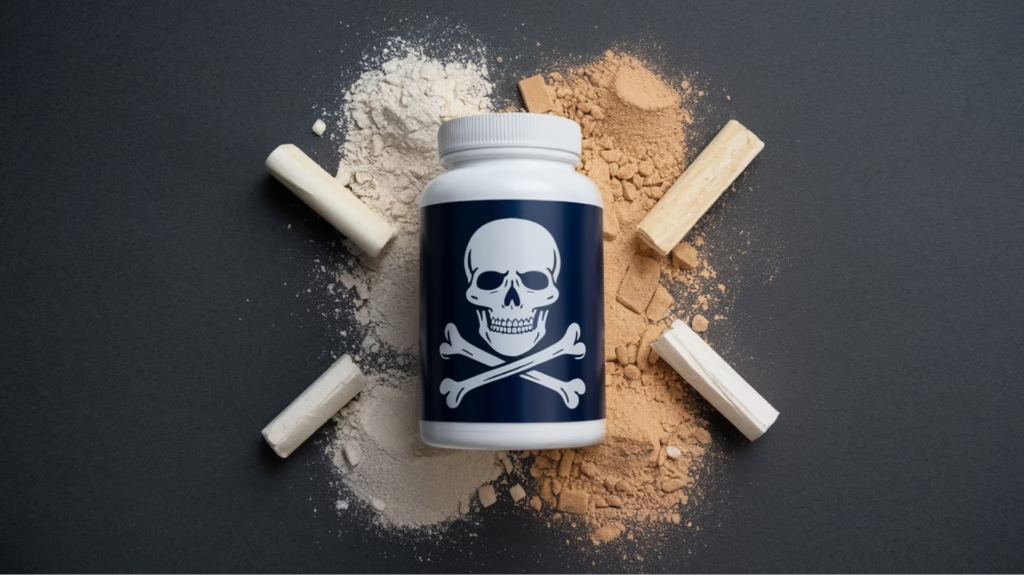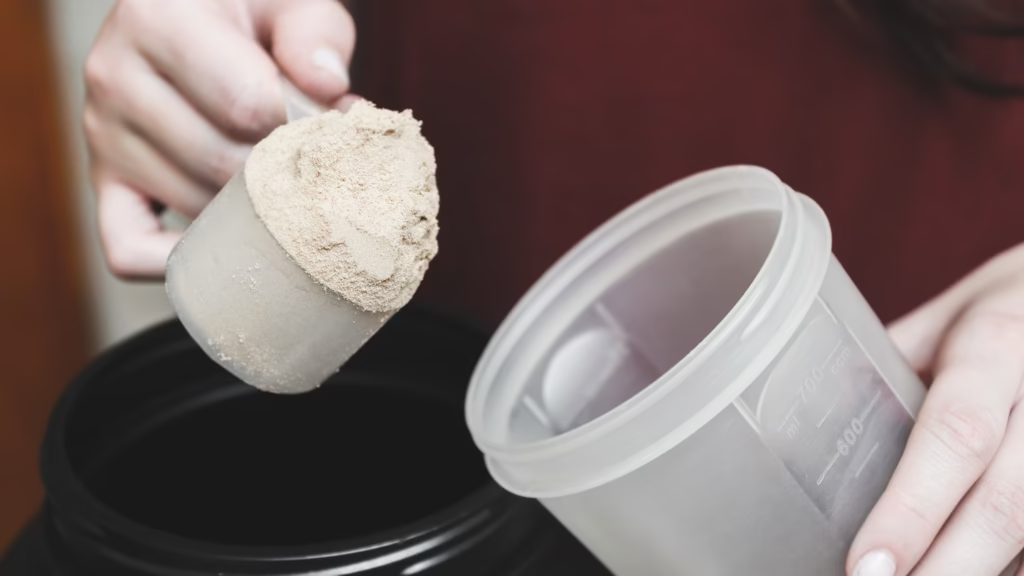Meta Description:
Your daily protein shake might not be as clean as you think. A new study reveals shocking levels of toxic lead and other metals in popular protein powders. Here’s what to watch out for.
Is Your Daily Shake Hiding a Toxic Secret?
For many people, a protein shake is the go-to drink after a workout or a busy morning. It’s quick, convenient, and loaded with nutrients — or so we think. But a new Consumer Reports study has raised serious red flags about the safety of protein powders and shakes.
The investigation found that many popular brands contain toxic levels of lead and other heavy metals, sometimes at amounts far beyond what’s considered safe for daily consumption.
What the Study Found
Researchers tested 23 top-selling protein supplements, including whey, beef, and plant-based options. The results were eye-opening — over two-thirds of the products contained more lead in a single serving than the safe daily limit.
Two plant-based powders — Naked Nutrition’s Mass Gainer and Huel’s Black Edition — were among the worst offenders. Each had more than 1,000% above the recommended limit of 0.5 micrograms of lead per day.
Experts warn that no amount of lead exposure is truly safe. Over time, even small doses can accumulate in the body, causing nerve damage, kidney problems, and high blood pressure.
Plant vs. Whey: The Surprising Difference
One of the biggest takeaways from the report was how plant-based protein powders compared to other types. While plant proteins are often seen as the cleaner, more natural choice, they were actually found to have nine times more lead than whey-based products and twice as much as beef-based ones.
That’s because plants absorb whatever is in the soil — including heavy metals from pollution or contaminated water.
| Protein Type | Lead Content (Compared to Whey) | Safety Level |
|---|---|---|
| Plant-based | 9x higher | ⚠️ High risk |
| Beef-based | 2x higher | ⚠️ Moderate risk |
| Whey (dairy) | Lowest levels | ✅ Safer option |
So, while whey isn’t perfect, it tends to be a safer bet if you use protein shakes regularly.
Why This Happens

Here’s the concerning part — protein supplements are not regulated by the FDA before they hit store shelves. That means there are no strict rules about how much lead or other metals a product can contain. Companies are expected to monitor their own quality, which often leads to inconsistent safety standards.
Until the FDA sets proper limits, the burden falls on consumers to make smart choices.
How to Stay Safe
If protein shakes are part of your daily routine, don’t panic — but do be cautious.
- Switch to whey-based or verified clean brands.
- Check for third-party testing on product labels.
- Avoid overconsuming protein powders.
- Get most of your protein from real foods like eggs, lentils, and chicken.
Most people already eat enough protein without needing supplements every day.
The Bottom Line
Protein powders can support your goals — but they shouldn’t come with toxic side effects. The latest findings are a wake-up call for everyone who depends on these products. Until tighter regulations exist, it’s best to use supplements in moderation and focus on getting your nutrients from whole, clean foods.
Because at the end of the day, true health isn’t about scoops — it’s about smart choices.


